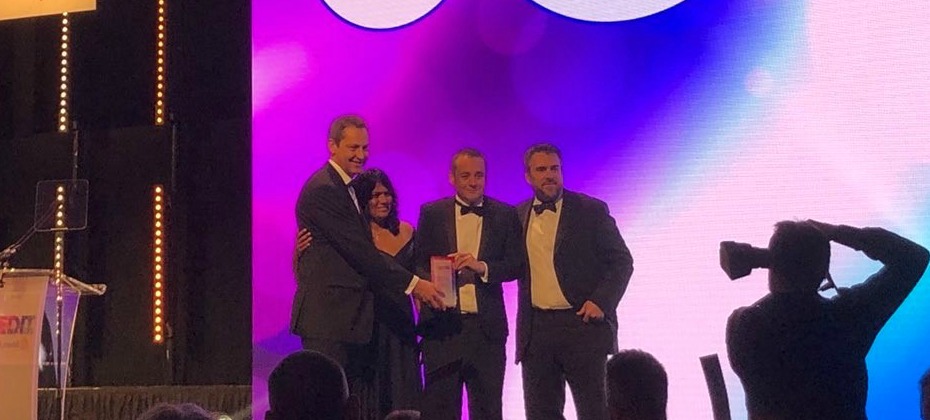There are many variations of passages of Lorem Ipsum available, but the majority have suffered alteration in some form, by injected humour, or randomised words which don’t look even slightly believable.

Paragraph block
Heading block
Pull Quote cloud news blog
There are many variations of passages of Lorem Ipsum available, but the majority have suffered alteration in some form, by injected humour, or randomised words which don’t look even slightly believable.
There are many variations of passages of Lorem Ipsum available, but the majority have suffered alteration in some form, by injected humour, or randomised words which don’t look even slightly believable.
- There are many variations of passages of Lorem Ipsum available,
- but the majority have suffered alteration in some form, by injected humour, or randomised words which don’t look even slightly believable.

Lorem Ipsum has been the industry’s standard dummy text ever since the 1500s, when an unknown printer took a galley of type and scrambled it to make a type specimen book. It has survived not only five centuries, but also the leap into electronic typesetting, remaining essentially unchanged. It was popularised in the 1960s with the release of Letraset sheets containing Lorem Ipsum passages, and more recently with desktop publishing software like Aldus PageMaker including versions of Lorem Ipsum.

Innovation is at the heart of our business and our culture. It is one of the reasons we’re proud to be named one of the top 100 most innovative companies in the world for the fifth year in a row by Forbes magazine. In the publication's eighth annual list of the "World's Most Innovative Companies," Experian climbed to the rank of 57th and is amongst the top 10 most innovative companies headquartered in Europe. Technology, innovation and new sources of data are fusing to create an unprecedented number of new ways for us to solve pressing business and consumer challenges. This accolade underscores our commitment to innovation, and using the power of data and technology to transform lives, businesses and economies for the better. At Experian, we have created a culture of continuous innovation focused on opportunities for businesses and consumers in today’s digital and data economy. Just a few examples include our involvement with the TechCity FinTech4All competition, which aims to discover a new generation of innovators and entrepreneurs who will change the future of finance, and our Experian MicroAnalytics work, which has extended over 5 billion credit offers to the world’s unbanked people. Experian has jumped up 40 places in this year’s Forbes ranking, placing us alongside some of the world’s leading technology companies including Tesla, Netflix and Amazon. This accolade demonstrates investors' confidence in Experian’s ability to innovate, both today and in the years ahead, and is a testament to the tireless work of our employees. Even more exciting is that we’re leading our industry in innovation. This is reflected in Experian being the only credit bureau to make the list this year. And innovation experts agree. According to author Greg Satell, who profiled Experian in his highly touted business book Mapping Innovation: A Playbook for Navigating a Disruptive Age, “Experian is the manifestation of a culture of discovery that enables it to grow and evolve while remaining at the forefront of innovation.” The key to our success going forward is to continue to actively seek out unresolved problems and to create new products and technologies that will helps transform the way businesses operate and consumers thrive in today’s society. Learn more about some of our pioneering innovations here: Connecting Businesses in Brazil Through Data Analytics Experian DataLabs Is Experimenting with a ‘Voice to Credit’ Feature Delivering Value in the Digital Age: Exploring UK Attitudes Towards Data We're on the Brink of a New Era of Innovation FinTech Breakthrough Selects Experian for “Consumer Lending Innovation Award” in 2018 Data on Demand – Unlock New Insights, Create Opportunities Faster than the Speed of Fraud — CrossCore

Experian MicroAnalytics has surpassed a record 5 billion credit offers, demonstrating our commitment to helping people in emerging markets create credit profiles and improve financial well-being. In emerging markets around the world, people have limited access to financial products, especially credit. At Experian MicroAnalytics we’ve developed a sustainable solution to provide billions of people with access to financial products, easily accessed through their mobile phones, unlocking the power of alternative data in countries across Latin America, Asia, Africa and beyond. “We’re thrilled to have extended over five billion credit offers,” said Elio Vitucci, CEO of Experian MicroAnalytics. “2017 was our fastest-growing year, and we are now extending over 270 million credit offers every month. Our goal is to help people in emerging markets build a strong financial identity. We build financial identities using mobile phone behavioral data, one of the richest sources of customer insight, and unlock an initial set of financial products. As customers use these products, they strengthen their financial identities and obtain access to an increasingly wider set of financial services.” While only a minority of people in emerging markets have access to banking services and even fewer have access to credit services, the vast majority have a mobile phone, most on a prepaid plan. Experian MicroAnalytics partners with mobile network operators around the world, using mobile behavioral data to start creating initial financial identities for people. With these financial identities, customers can start to gain access to simple but useful financial products, such as airtime credit. As customers continue to take and repay their borrowed airtime credits successfully, they strengthen their financial identities and progressively unlock a wider, more complete set of financial services. This creates a virtuous circle, where in time customers graduate to a full set of financial products. “We help consumers in emerging markets to build a financial identity, unlocking access to financial products such as loans, credit cards, insurance and more, all available via their mobile devices,” Vitucci added. “These financial products fuel economic development, stimulate growth and have a positive impact on the quality of life for billions of people.”

What would your reaction be if you were told you were one of the four million people in the UK who had a ‘thin file’? Justifiably, your first questions might be to ask what that is and why it matters. A person has a ‘thin file’ when there is limited financial information available about them, which means usually they have a lower credit score and fewer options available when it comes to accessing financial services. Research we carried out earlier this year found 1.2 million people with thin files are in groups whose household disposable income is forecast to fall in the coming years. As a credit reference agency, responsible for helping lenders to make informed decisions about their customers, the statistics are clear in showing there is work to be done. The commitment to address this issue is part of the reason why Experian was recognised for raising Consumer Awareness in Credit at the Credit Awards 2018. How can we help lenders to better understand the four million people in the UK who, at the moment, struggle to access mainstream financial services? For many people, a typical credit report may contain a bank current account, a couple of utility suppliers, a credit card and perhaps a mortgage. But what about those who haven’t opened a bank account, pay for their electricity and gas using a top-up meter and live in rented accommodation? How can we work with mainstream lenders so they can better understand these customers, and as a result, make informed decisions? Innovation is the only answer. At Experian, we believe finding new sources of data is the key to delivering better outcomes for people who have thin files. Our work with The Big Issue Invest on the Rental Exchange, which will mean 1.2 million tenants see their rental payments on Experian credit reports for the first time, is a great example of expanding our perspective on the regular payments people already make. By sharing this information with lenders, it opens up new possibilities for tenants across the UK. Our research on thin files has accurately sketched the issue in front of us, and we are making progress in raising awareness among consumers about how they can improve their credit profile – even easy, free choices such as registering to vote. Engaging with your financial information is the first step to improving it. Our challenge is now to find more sources of data which will allow lenders to recognise potential customers who, up until now, they have been unable to support. But more than that, to offer the analytics which turns data into an invaluable resource when making decisions.
In this article…
First Heading
Lorem Ipsumis simply dummy text of the printing and typesetting industry. Lorem Ipsum has been the industry’s standard dummy text ever since the 1500s, when an unknown printer took a galley of type and scrambled it to make a type specimen book. It has survived not only five centuries, but also the leap into electronic typesetting, remaining essentially unchanged.
It was popularised in the 1960s with the release of Letraset sheets containing Lorem Ipsum passages, and more recently with desktop publishing software like Aldus PageMaker including versions of Lorem Ipsum
- test1
- test1

Second Heading
It is a long established fact that a reader will be distracted by the readable content of a page when looking at its layout. The point of using Lorem Ipsum is that it has a more-or-less normal distribution of letters, as opposed to using ‘Content here, content here’, making it look like readable English.
Many desktop publishing packages and web page editors now use Lorem Ipsum as their default model text, and a search for ‘lorem ipsum’ will uncover many web sites still in their infancy. Various versions have evolved over the years, sometimes by accident,
How Experian can help with card fraud prevention and detection
Contrary to popular belief, Lorem Ipsum is not simply random text. It has roots in a piece of classical Latin literature from 45 BC, making it over 2000 years old. Richard McClintock, a Latin professor at Hampden-Sydney College in Virginia, looked up one of the more obscure Latin words, consectetur, from a Lorem Ipsum passage, and going through the cites of the word in classical literature, discovered the undoubtable source.
Lorem Ipsum comes from sections 1.10.32 and 1.10.33 of “de Finibus Bonorum et Malorum” (The Extremes of Good and Evil) by Cicero, written in 45 BC. This book is a treatise on the theory of ethics,
very popular during the Renaissance. The first line of Lorem Ipsum, “Lorem ipsum dolor sit amet..”, comes from a line in section 1.10.32.

Fourth Heading
Lorem Ipsum has been the industry’s standard dummy text ever since the 1500s, when an unknown printer took a galley of type and scrambled it to make a type specimen book. It has survived not only five centuries, but also the leap into electronic typesetting, remaining essentially unchanged. It was popularised in the 1960s with the release of Letraset sheets containing Lorem Ipsum passages, and more recently with desktop publishing software like Aldus PageMaker including versions of Lorem Ipsum.
